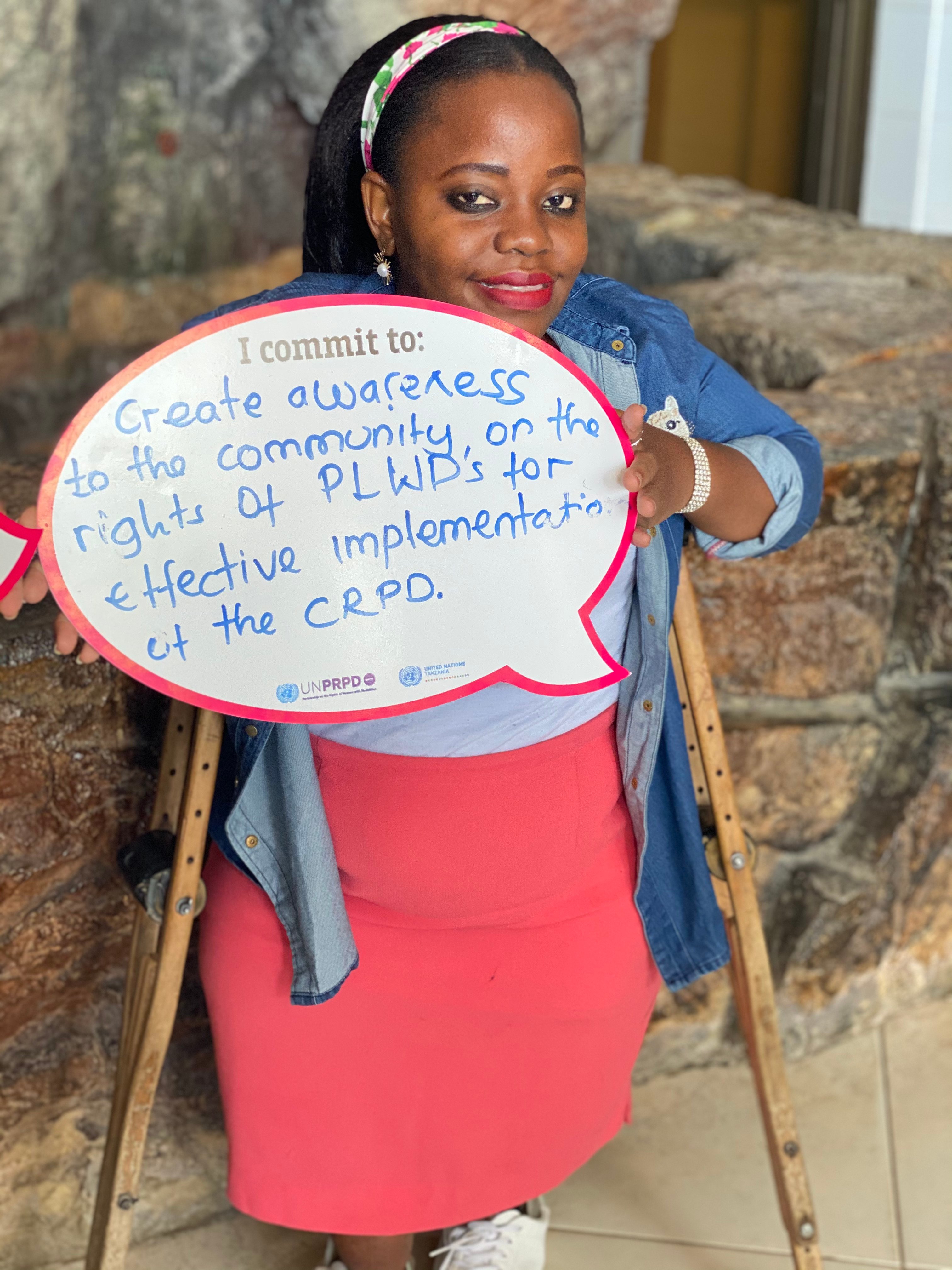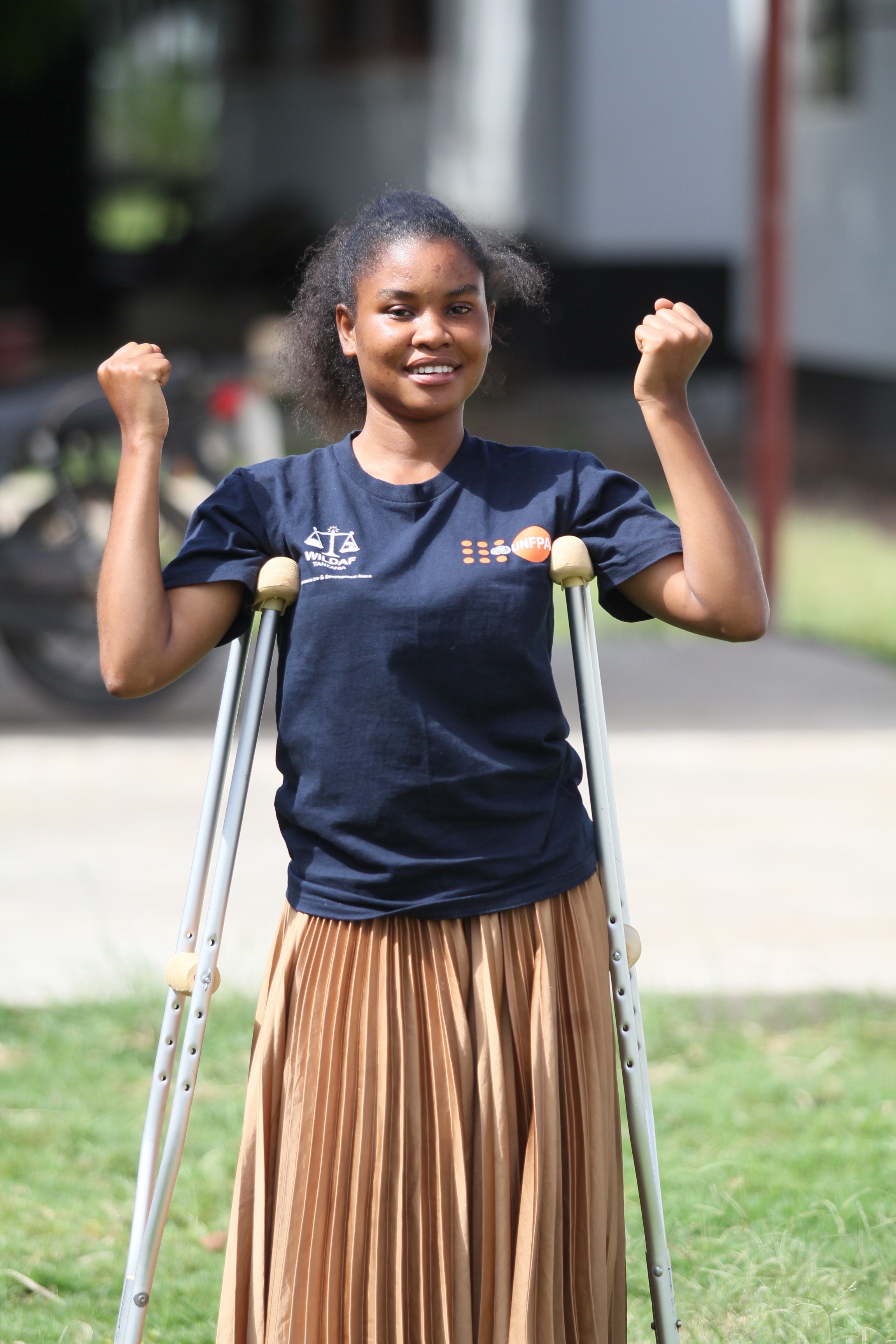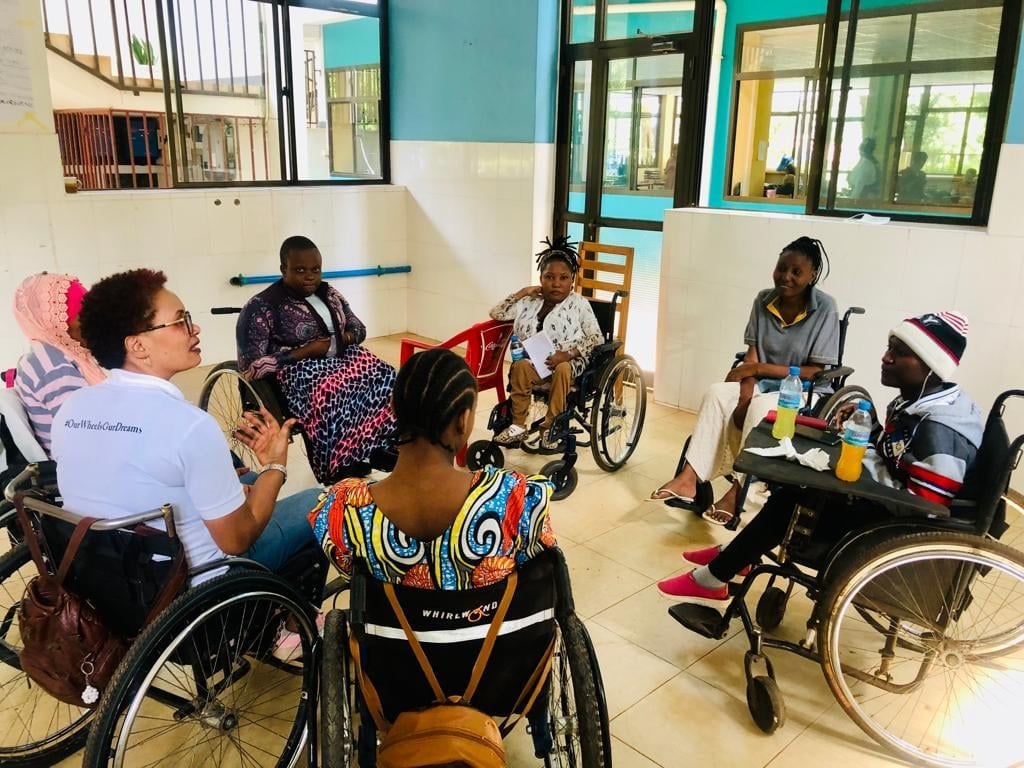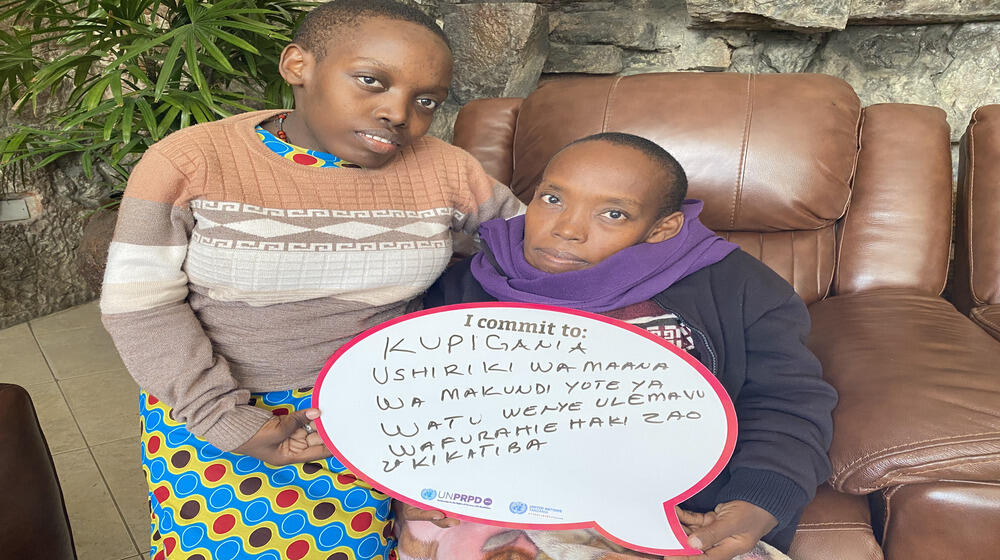Isaya Mlinyi, a special education teacher, spearheaded a project aimed at identifying persons with specific disabilities in the Morogoro rural district of Tanzania. Initially tasked with locating and caring for children with albinism and those with visual impairments, Mlinyi expanded his efforts after encountering individuals with other impairments.
"Some parents denied having a child with a disability, despite contrary records at local leadership offices,"
Isaya tirelessly reasoned and argued, ensuring that every disabled person he encountered was guided towards hope. To promote inclusivity and ensure the well-being of persons with disabilities (PWDs), the Prime Minister’s Office - Labour Employment Youth and Disabled (PMO-LYED), in collaboration with the United Nations Population Fund (UNFPA), developed an electronic repository of information known as the Persons with Disability Management Information System (PD-MIS). Launched by the Prime Minister of Tanzania, Honourable Kassim Majaliwa Majaliwa, on December 2, 2023, the PD-MIS serves as a centralized, reliable, and up-to-date database capturing accurate, personalized information about persons with disabilities in Tanzania Mainland.

Expressing gratitude for financial and technical support from UNFPA in developing the PD-MIS, the Prime Minister emphasized that the system demonstrates the government's commitment to understanding the diverse needs within the disability spectrum and generating evidence for decision-making.
Previously information about PwDs was recorded through manual registers at village and ward levels, and data collected for the census was collected by the National Bureau of Statistics every ten years. The national chairperson of the National Federation of Organizations of PwDs (SHIVYAWATA), Mr Ernest Kimaya, highlighted the database's role as a foundation for evidence-based decision-making, enabling the design and implementation of programs and policies addressing specific challenges faced by PWDs.SHIVYAWATA played a crucial role in conceptualizing the PD-MIS and will continue to make the information useful.
Supported by funding from the Government of Finland through the Chaguo Langu Haki Yangu - My Choices My Rights programme, UNFPA Tanzania initiated and developed the PD-MIS, addressing issues related to routine and reliable information on disabled persons.

"This database will serve as a valuable tool for policymakers, researchers, and advocates, facilitating evidence-based decision-making and amplifying the voices of persons with disabilities," stated Dr. Marwa Majaliwa, UNFPA Assistant Representative, at the launch.
The journey to the PD-MIS began with the United Republic of Tanzania’s ratification of the Convention of the Rights of Persons with Disabilities in 2009 and the enactment of the Disabilities Act in 2010, which both mandate an updated register of disabled persons from the village to the national level.
Following the PD-MIS launch, the Prime Minister directed Local Government Authorities (LGAs) to strengthen their efforts for the identification and registration of persons with disabilities in PD-MIS.
The Secretary-General of SHIVYWATA, Mr. Jonas Lubago, emphasized the need for social welfare officers and village executives to acquire updated skills for entering data into the system. Organizations of persons with disabilities should also have access to entering information and accessing visualized data.

According to the World Health Organization, 16 percent of the world's population, or 1.3 billion people, live with some form of disability. In Tanzania, the 2012 Population and Housing Census recorded that 9.3 percent of the population lives with a disability, though the actual number is likely to be higher. Efforts are underway to address the exclusion and invisibility of persons with disabilities, with the government expanding access to inclusive education, including access to vocational education. Inclusive education is gaining momentum, with schools like Mazinyungu Inclusive Education Primary School offering dormitories to enable children with disabilities to access primary education, a feature absents in many public primary schools.
Background Information:
The International Day of Persons with Disabilities (IDPD), observed annually on December 3rd, mobilizes support for the dignity, rights, and inclusion of persons with disabilities. In Tanzania, the IDPD of 2023 was observed on December 2, 2023, in Dodoma, with Prime Minister Hon Kassim Majaliwa Majaliwa as the Guest of Honor. The United Nations theme for IDPD 2023 was 'United in action to rescue and achieve the Sustainable Development Goals (SDGs) for, with, and by persons with disabilities.'
About Chaguo Langu Haki Yangu – My Rights My Choices.
Chaguo Langu Haki Yangu - ‘My Rights My Choices’ is a three-and-a-half-year programme (2021-2025) implemented by UNFPA, the United Nations Sexual and Reproductive Health agency, with funding from the Government of Finland.
The programme’s goals are to ensure that the rights and choices of women and girls, particularly women and girls with disabilities, are protected and enhanced through a multi-sectoral and holistic response that tackles gender-based violence and harmful practices, including teenage pregnancy, child marriage and female genital mutilation.
The programme is implemented as part of activities to realise the National Plans of Action to End Violence Against Women and Children (NPA-VAWC) in Mainland Tanzania (2016/17-2021/22) and Zanzibar (2017-2022).
Direct beneficiaries: Adolescent girls and young women, particularly women and girls with disabilities, living in Shinyanga (Kishapu and Kahama districts) and Mara Regions (Tarime and Butiama districts) and Zanzibar (Urban district in Unguja and Chake Chake district in Pemba) who are vulnerable to or survivors of GBV, FGM and early and child marriage.
Indirect beneficiaries: Affected families, targeted communities and government institutions whose capacities will be strengthened to prevent and respond to gender-based violence and harmful practices, including teenage pregnancy, child marriage and female genital mutilation, and to uphold the rights of women and girls, particularly women and girls with disabilities.
The programme enhances coordination, knowledge-sharing, and policy development to support the implementation of the NPA-VAWC in Mainland Tanzania and Zanzibar in collaboration with the Government of the United Republic of Tanzania, including local government authorities.
For Media queries and further information please contact:
Dr. Warren Bright,
Communications Analyst,
UNFPA Tanzania,
Email: bwarren@unfpa.org,
Mobile: +255 764 43 44 45


